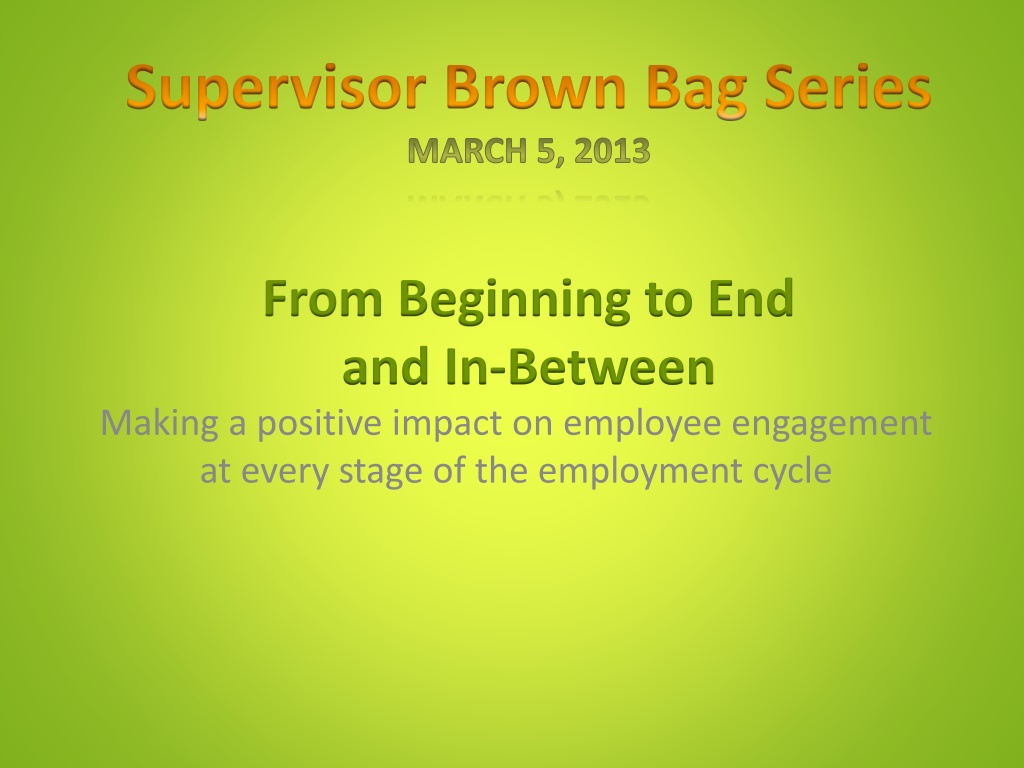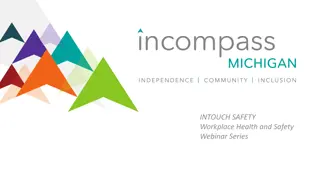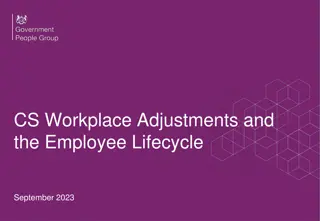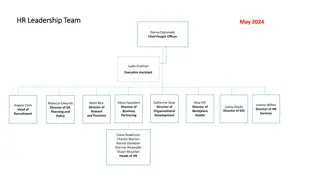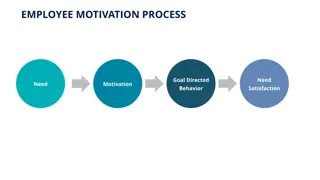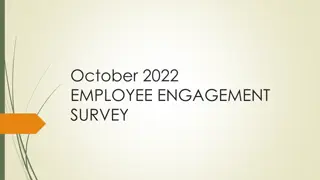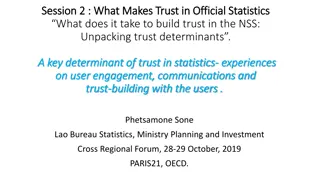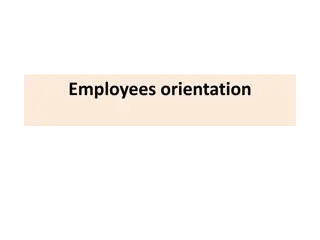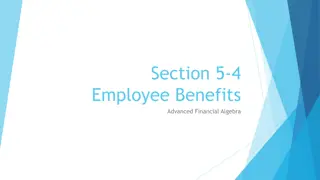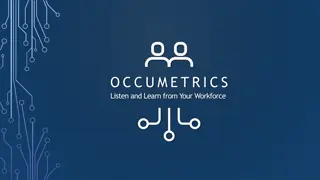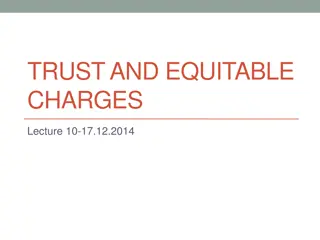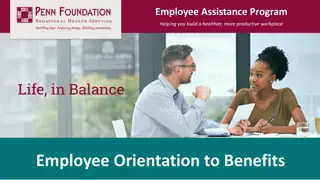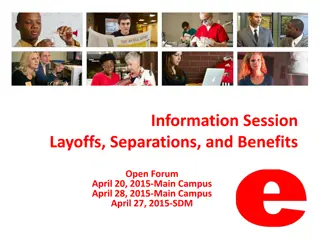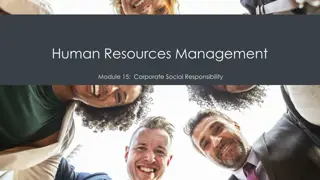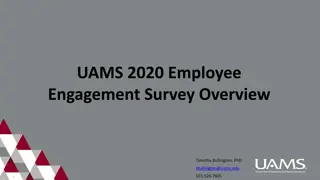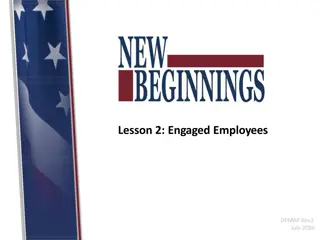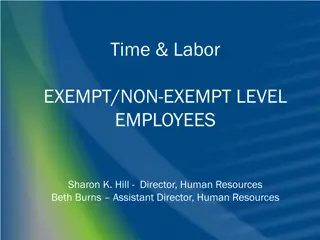Employee Engagement and Trust Building in the Workplace
Understanding and fostering employee engagement is crucial for organizational success. Engaged employees are passionate, innovative, and drive the company forward, while disengaged or actively disengaged employees can undermine progress. Effective communication, a stimulating work environment, professional growth opportunities, and recognition are key factors in retaining engaged employees. Building trust with supervisors is essential, as trust is the foundation for strong working relationships and achieving the best from team members.
Download Presentation

Please find below an Image/Link to download the presentation.
The content on the website is provided AS IS for your information and personal use only. It may not be sold, licensed, or shared on other websites without obtaining consent from the author. Download presentation by click this link. If you encounter any issues during the download, it is possible that the publisher has removed the file from their server.
E N D
Presentation Transcript
Supervisor Brown Bag Series MARCH 5, 2013 From Beginning to End and In-Between Making a positive impact on employee engagement at every stage of the employment cycle
What is engagement? Engagement is the process of leading people by enabling them to want to do whatever is necessary to ensure the continuous high performance and success of the organization. Scarlett Surveys International
The Three Types of Employees 1. Engaged: Employees work with passion and feel a profound connection to their company. They drive innovation and move the organization forward. 2. Non Engaged: Employees are essentially checked out. They re sleepwalking through their workday, putting time but not energy or passion into their work. 3. Actively Disengaged: employees aren t just unhappy at work: they re busy acting out their unhappiness. Every day, these workers undermine what their engaged coworkers accomplish.
Supervisors are when it comes to employee
STEPS OF THE PERFORMANCE MANAGEMENT PROCESS:
Why Engaged Employees Stay 1. Effective Communication with supervisors and colleagues 2. Fun and stimulating work environment 3. Professional Growth opportunities 4. Recognition for good performance It takes far more energy to improve from incompetence to mediocrity than to improve from first-rate performance to excellence. -- Peter Drucker
Why Engaged Employees Stay 1. Effective Communication with supervisors and colleagues Supervisor s Role BUILD TRUST
Building Trust Remember, when you were made a leader, you weren t given a crown, you were given a responsibility to bring out the best in others. For that, your people need to trust you. -- Jack Welch, former CEO, General Electric
Building Trust Think of someone at work with whom you have a high trust relationship What is it like to work with this person? What is communication like? How long does it take to get things done? What kind of results are you able to achieve?
Building Trust Think of someone at work with whom you have a low trust relationship What is it like to work with this person? What is communication like? How long does it take to get things done? What kind of results are you able to achieve?
Why Engaged Employees Stay 1. Effective Communication with supervisors and colleagues (Trust) 2. Fun and stimulating work environment Supervisor s Role Facilitate a healthy environment: Everett Clinic video Be clear about performance expectations Take action with disengaged employees
Why Engaged Employees Stay 1. Effective Communication with supervisors and colleagues 2. Fun and stimulating work environment 3. Professional Growth opportunities Supervisor s Role Be intentional about training and development
Be Intentional about Training and Development Set SMART goals
Be Intentional about Training and Development Provide support to facilitate progress Many resources available through SCSU Office of Human Resources Tuition Waivers Training Grants MnSCU training Training Tuesdays Staff Development Conference Others Visit HR
Why Engaged Employees Stay 1. Effective Communication with supervisors and colleagues 2. Fun and stimulating work environment 3. Professional Growth opportunities 4. Recognition for good performance Supervisor s Role Recognize good performance!
Recognize Good Performance Regular verbal feedback Annual performance reviews Monetary awards (limited at SCSU) Non-monetary rewards
